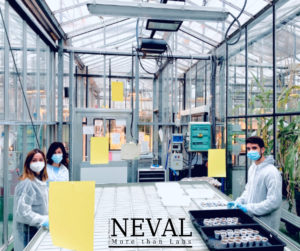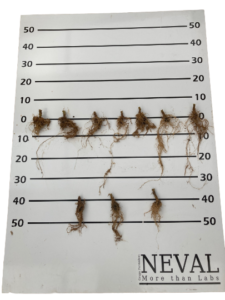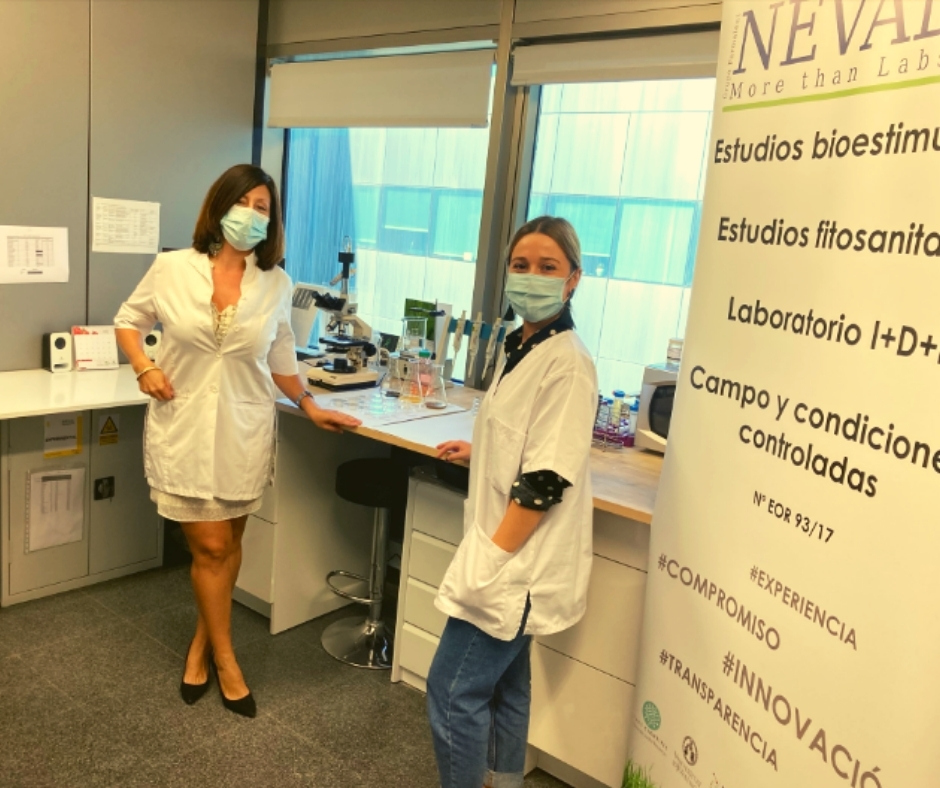Kristell Santander directs NEVAL, a firm that received the Bioval award for the best BIO initiative in agri-food at the 2020 edition of the BIO Night. This agricultural R&D laboratory is a specialist in tests with nematodes and, as she herself points out, “biotechnology can be the key tool to be able to coexist with these pathogens without affecting crops”.
- What value do the tests carried out by NEVAL bring to the agronomic sector?
NEVAL conducts private research studies for companies that work with products for nutrition and plant protection.
Depending on the information that the company has about its product, our team of professionals assesses the strategies to follow to obtain the maximum information.
In the case of having prior information, NEVAL is an officially recognized company for conducting tests for registration so the studies would be carried out under all the necessary regulations.
- Which is NEVAL’s method that differentiates it from the rest of the firms dedicated to this activity?
NEVAL was born to offer a research service linked to registration, improving communication during the study, as well as a specialization in nematodes and to have its own experimental fields for more complicated tests.
Working in a scientific community provides a shorter reaction time to any type of need.
NEVAL is certified as a company for the Diagnosis of Phytopathogenic and Quarantine Nematodes so, in addition to working daily on these existing problems and having its own collection, it knows thresholds, times of application and strategies to improve efficiencies.
Our knowledge about the moments of the plague or disease also differentiates us in the case of products that control biotic factors.
In the case of biostimulants, from the beginning we realized that a microorganism cannot live in a soil saturated with fertilizers, the main idea of registering these products is to reduce excess fertilization and make them an alternative to increase the harvest , so we work in areas where there is no interference to see the expression of these microorganisms.
- What led you to become the First Private Collection of Phytoparasitic Nematodes in Spain?
In Spain there may be other laboratories that quantify or identify nematodes, the difference is that NEVAL, in addition to being a laboratory that processes different kind of samples daily, we know the damages and, little by little, the different economic thresholds.
We decided to save the most important nematodes to be able to work in vitro, in pots or others.
This allows us to test products in a more precise and specific way and we can advise our clients better.
In addition, advising the various technicians and/or farmers with problems on the farms, summarize to the fact that we are one of the companies that tests the most nematicides, allows us to better understand the behavior of the different nematodes, the interactions with other pathogens in the field, among others.
Always in constant learning, of course, and with the confidentiality that all the studies we carry out deserve.
- How do you rate the level of scientific rigor of your analysis to quantify nematode populations?
We work under EPPO regulations, and we are certified by Sanidad Vegetal.
The samples we analyze are carried out in a double way and counter-analyzes are carried out in case of doubts, but it is important to know what we are looking for and do a good search or extraction of the soil.
Based on the fact that a soil sample is unique, and that there is not the same population in a dripper zone that 40 cm beyond it, the extractions are carried out in full.
- What did it mean from a business point of view?
An increase in knowledge of an area implies an increase in the demand of services; we have clients of all kinds, national and international.
- Are there many laboratories nationwide dedicated to nematodes like you?
Like NEVAL, there are not. Yes, there are some analytical laboratories that quantify or identify, but in the end they do not have answers and cannot advise as we do because they do not know the efficacy of the products closely, nor do they carry out their own investigations and have not been in the field with heterogeneity problems, from sampling to create homogeneous tests, etc.
This is experience and is not learned just in the laboratory.
- How do nematode trials influence the agronomic sector?
From our point of view there is a lot of movement in research with nematicides and nematostatics.
- Can biotechnology be the key tool to be able to coexist with these pathogens and not affect crops?
As this question points out, you have to live with these pathogens. If biotechnology can be the key tool, it is for which a lot of effort is being made, we are hopeful about it.
- As a first-line witness in terms of plant health, how has this field evolved in recent years?
There seems to be a greater knowledge on the part of the technicians of the problem and there are commitments of disinfection of tools, as well as of rotating crops and not creating resistance, although there is much to do.
On the part of Sanidad Vegetal, the new materials come with much more security than a few years ago.
- What do you think is the trend for the future?
A combined and rational strategy.
- What challenges do agricultural companies, technicians and product development firms face in this regard?
An obligation to know the interactions between various chemicals and microorganisms against the pathogen in the short and long term.



